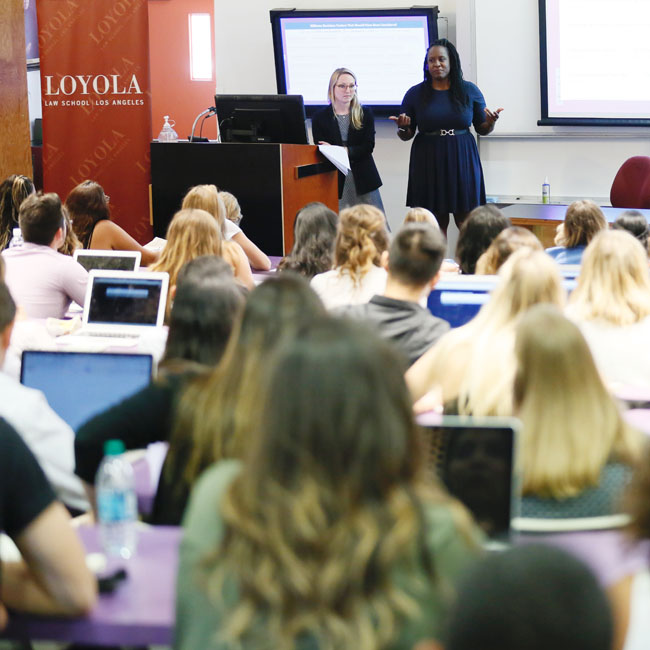Revamped Orientation Puts Social Justice, Practical Training First

“When I hand you your degree in three years, you are going to be transformed,” said Fritz B. Burns Dean Michael Waterstone at the plenary session of Loyola Law School’s revamped New Student Orientation, held August 9-11. Professors and alumni worked quickly to make good on that promise, leading sessions on everything from developing relationships with clients from underserved populations to hot topics like online privacy, transgender equality and human trafficking. Meanwhile, the new “First To Go” program provided advice to new students making their families’ first foray into law school.
The three-day event included new students from a range of Loyola’s programs: Juris Doctor (JD), Master of Laws (LLM), Master of Science in Legal Studies (MLS) and Master of Tax Law. Dean Waterstone noted that the transforming landscape of legal education increasingly focuses on those pursuing law in nontraditional ways, such as Loyola’s MLS degree, for those who work with the law but don’t intend to practice it.
“We face challenges to society, but law is still central,” said Dean Waterstone. “More of the law is being experienced by people who don't have the full-blown JD degree.” No matter the legal degree earned, he emphasized the impact Loyola alumni can have: “We give our students the tools to effect change, to make the world a better place.”
Social-justice lawyering was a key theme of the week. In “Thinking Like a Lawyer,” Professors Sean Kennedy and Priscilla Ocen explored issues of racial equality and implicit bias via a landmark contract-law case involving a store that targeted poor and minority clients with unfair credit terms. As experts in representing the underserved, Loyola Immigrant Justice Clinic Co-Directors Marisa Montes and Emily Robinson assisted with the discussions. The sessions implemented a new text-to-screen system that allows students to text answers to classroom questions.
The week culminated with a mixer that brought new matriculants together with upper-division students, faculty, alumni and staff.